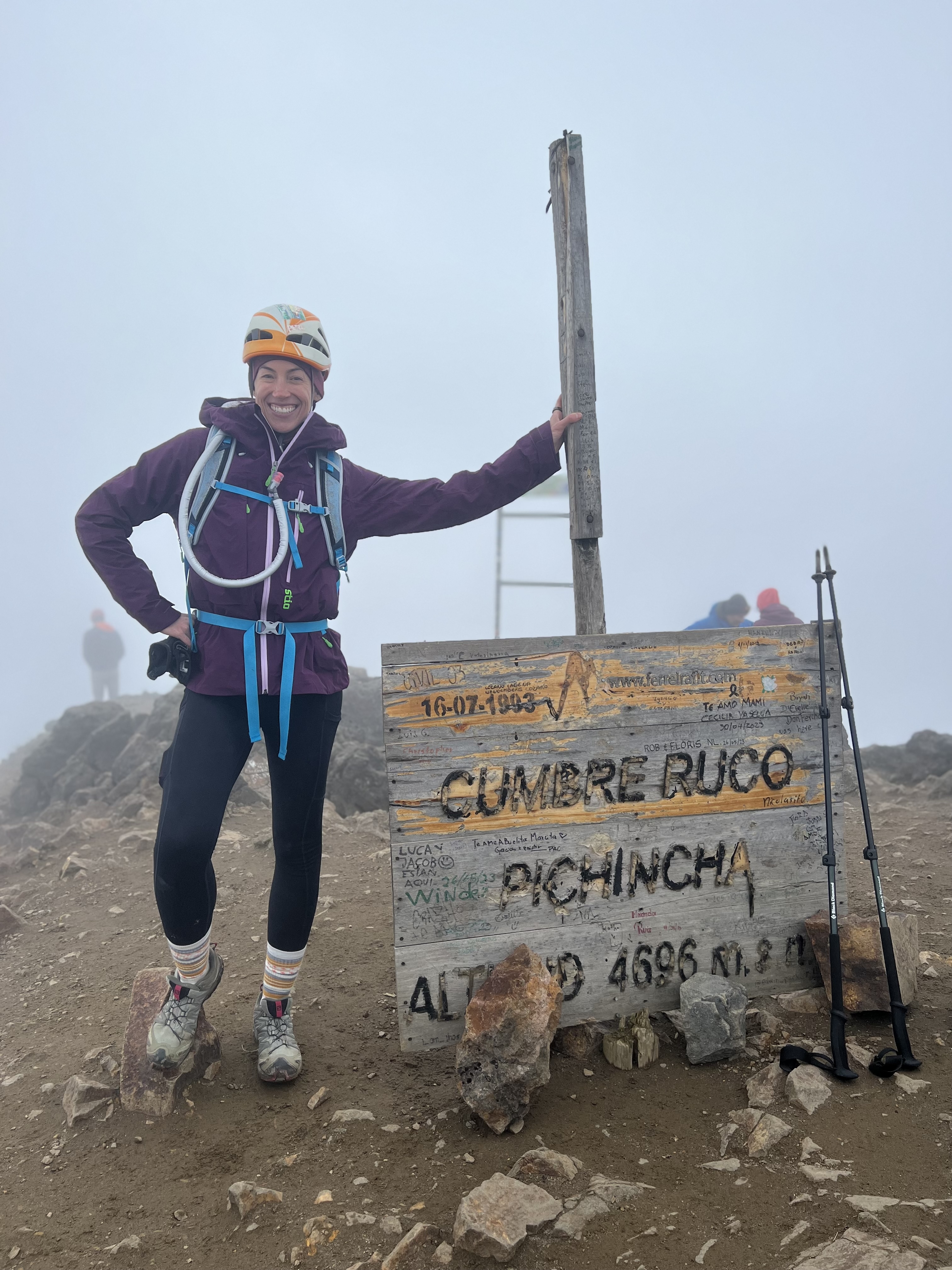The Hard Road to Flourishing – Building Resilience, Grit, and Embracing Stress as a Catalyst for Growth

Posted on Fri 25 Oct 2024 · by Sunnee Hoppe
Change is Hard—But You’re Stronger Than You Think
Let’s be real–change is hard. Throughout this blog series, we've uncovered ways to make lasting changes, but let’s not romanticize the process. The reality? Change is tough. Google 'how hard is it to change,' and you’ll see countless articles discussing just how difficult it is. In Blog #1, we touched on neuroplasticity and the brain's ability to form new neural connections, but the truth is, our brains are wired to seek comfort and avoid pain. Since change often feels uncomfortable, it’s no surprise that it can feel like an uphill battle.
As we journey toward personal growth and self-actualization, it's easy to overlook the grit, resilience, and mental fortitude needed to see it through. While we’re frequently told that change is good, rarely do we hear about the hard work behind it. This final blog serves as a reminder that although the road to flourishing is challenging, it also offers profound personal growth if we embrace it with the right mindset.
In this final blog, we’ll explore four powerful concepts that highlight what it takes to create lasting change: resilience, grit, stress as a growth catalyst, and post-traumatic growth. As you read, reflect on which resonates most with you, and consider how to integrate it into your own journey.

Psychological Capital: A Foundation for Growth
Psychological Capital (PsyCap) is a psychological concept which highlights four core components crucial for overcoming life’s challenges: hope, optimism, resilience, and self-efficacy. Together, these elements form the bedrock of a mindset that empowers us to tackle adversity head-on.
Hope fuels our motivation to set and achieve goals.
Optimism allows us to see the silver linings, even in tough situations.
Resilience equips us to bounce back from setbacks.
Self-efficacy gives us the confidence to take on new challenges.
Notice the inclusion of resilience—the road to change is hard, and we often encounter failures, setbacks, or bumps along the way. Resilience is essential to growth. Research shows that well-being suffers when we expect perfection without any mistakes. Building your PsyCap can be a game-changer when facing personal obstacles. It’s not just about surviving change; it’s about thriving through it. When we strengthen these internal resources, we learn how to persist and grow despite challenges.
Imagine someone recovering from a job loss. Initially, they might feel hopeless, but by nurturing optimism and self-efficacy, they can start envisioning new career paths and take actionable steps toward achieving them. Over time, they might find that the setback ultimately led them toward a more fulfilling life path.
Grit: The Power of Perseverance
Angela Duckworth's research on grit further underscores the importance of perseverance and passion in achieving long-term goals. Grit isn’t about never failing; it’s about consistently getting back up after every fall (a’hem, resilience!). It’s about maintaining focus, even when external pressures build up, and pushing through when motivation dwindles. As you work towards becoming your ideal self, being gritty will keep you on track when things get tough.
Duckworth’s studies show that individuals with high levels of grit are more likely to succeed, not because they have fewer challenges, but because they continue to push forward despite them. In this way, grit is like a muscle: the more you use it, the stronger it becomes. Embracing grit in your growth journey can help you maintain focus and determination, even when the road gets tough.
Stress is Enhancing: A Mindset Shift
The way we perceive stress can significantly impact our ability to cope with it. Research led by Alia Crum introduces the concept of the "stress is enhancing" mindset. This perspective suggests that stress can be a positive force that enhances performance, improves health, and fosters resilience.
Let’s be frank: stress can be a good thing (it’s called eustress).
Eustress is a form of positive stress, often experienced when we’re working toward a challenge that feels exciting, yet attainable—think of the thrill before a big presentation or taking on a new project or the stress your muscles feel as you’re pushing through those final reps.
Chronic stress (distress), on the other hand, leads to burnout, anxiety, and can be harmful if unmanaged. It’s the type of stress we can experience when we have unrelenting work deadlines or relationship conflicts.
Instead of viewing ALL stress as a harmful and debilitating force, reframing eustress as growth opportunities can shift our mindset, transforming stress from a hindrance into a tool that fuels resilience. This mindset shift allows us to handle difficult situations better, making us more resilient and better equipped to handle the inevitable stresses that accompany significant change.
Post-Traumatic Growth: Rising Stronger
For some, the most profound growth occurs after significant adversity. Post-traumatic growth (PTG) refers to the positive psychological change that can occur after going through trauma or deeply challenging life experiences. Supporting research describes how people can experience personal growth, increased resilience, and a renewed sense of purpose following trauma. PTG suggests that once individuals are ready, they can develop a greater appreciation for life, improve their relationships, and foster a deeper sense of meaning than they had before the trauma.
While traumatic experiences can be devastating, PTG offers hope that growth is possible even after loss or hardship. Personally, I find comfort in knowing that. As you navigate your own growth journey, it’s essential to recognize that setbacks and struggles are not just obstacles—they are opportunities for growth. By embracing the concept of PTG, you can transform your challenges into a catalyst for even greater self-actualization.

Wrapping up the Series: Embracing the Journey Ahead
Throughout this blog series, I’ve offered various practical tools for navigating change, but these are just the beginning. If one concept has sparked something inside you, now is the time to explore it further. Check out the additional resources below to continue your growth journey.
Whether you’re embarking on a transformational travel experience with Honest Heart Journeys or navigating change in your daily life, building resilience, embracing grit, and adopting a "stress is enhancing" mindset can empower you to overcome obstacles and thrive. Remember, change isn’t easy, but with the right tools and mindset, it can lead to a life that is not just different, but profoundly better.
We’ve discussed a lot, and I know it might feel overwhelming. But here’s the thing—the best next step is simply taking the first step. If you need guidance or want to chat about your own journey, I’m here to help.
References
Crum, A. J., Salovey, P., & Achor, S. (2013). Rethinking stress: The role of mindsets in determining the stress response. Journal of Personality and Social Psychology, 104(4), 716-733.
Duckworth, A. (2016). Grit: The power of passion and perseverance. Scribner.
Luthans, F., & Youssef-Morgan, C. M. (2004). Psychological capital: Developing the human competitive edge. Oxford University Press.
Neff, K. D. (2003). Self-compassion: An alternative conceptualization of a healthy attitude toward oneself. Self and Identity, 2(2), 85-101. https://doi.org/10.1080/15298860309032
Tedeschi, R. G., & Calhoun, L. G. (2004). Posttraumatic growth: Conceptual foundations and empirical evidence. Psychological Inquiry, 15(1), 1-18.
Additional Reading & Resources
Read: The Upside of Stress by Kelly McGonigal – Learn how embracing stress can lead to resilience and greater success.
Listen: How to turn grit into a lifelong habit – an interview with Angela Duckworth covering what it takes to persevere and succeed in all aspects of our lives
Read: Resilience: The Science of Mastering Life's Greatest Challenges by Steven M. Southwick and Dennis Charney – A comprehensive look at the psychological and emotional skills needed to cope with stress and adversity.
Watch: Post-traumatic growth is real – with the right support – Alix Woolard, a trauma researcher, discussed how we can grow from trauma
Podcast: The Grit Factor – Explore the science of grit and perseverance.